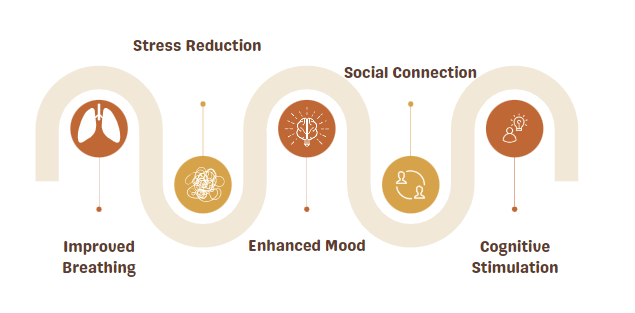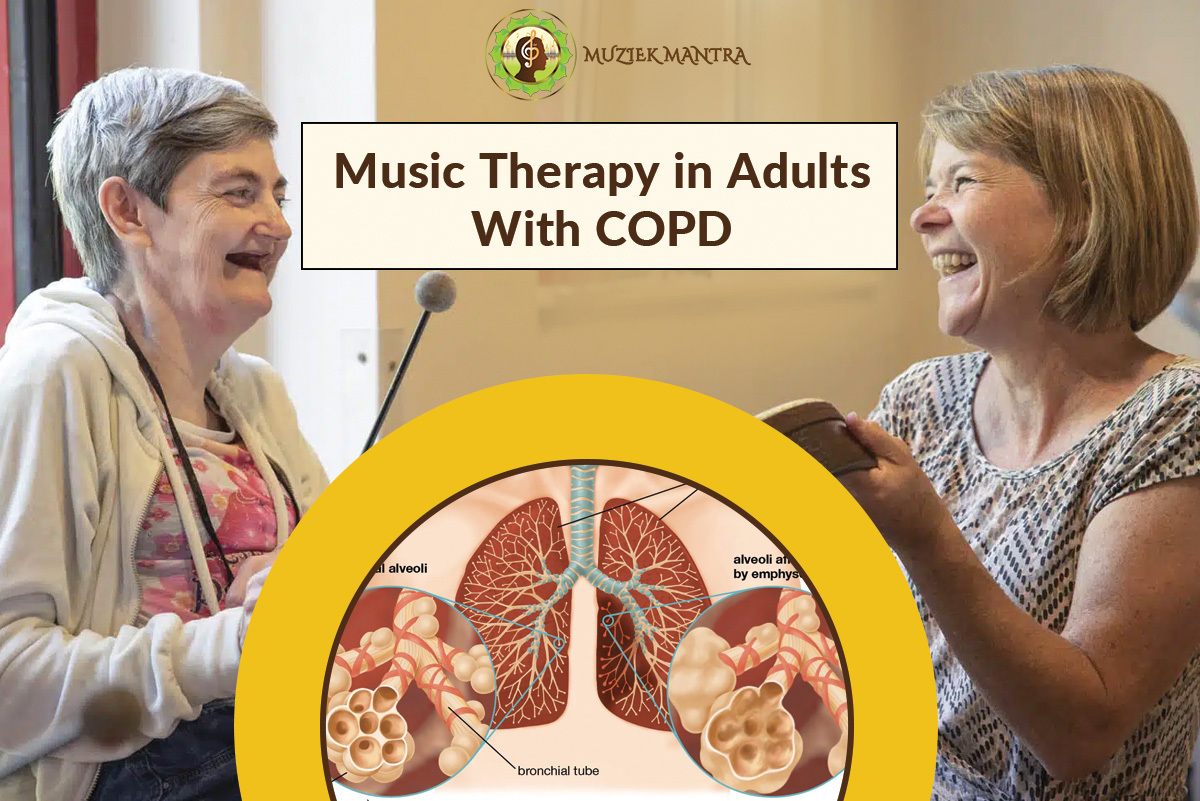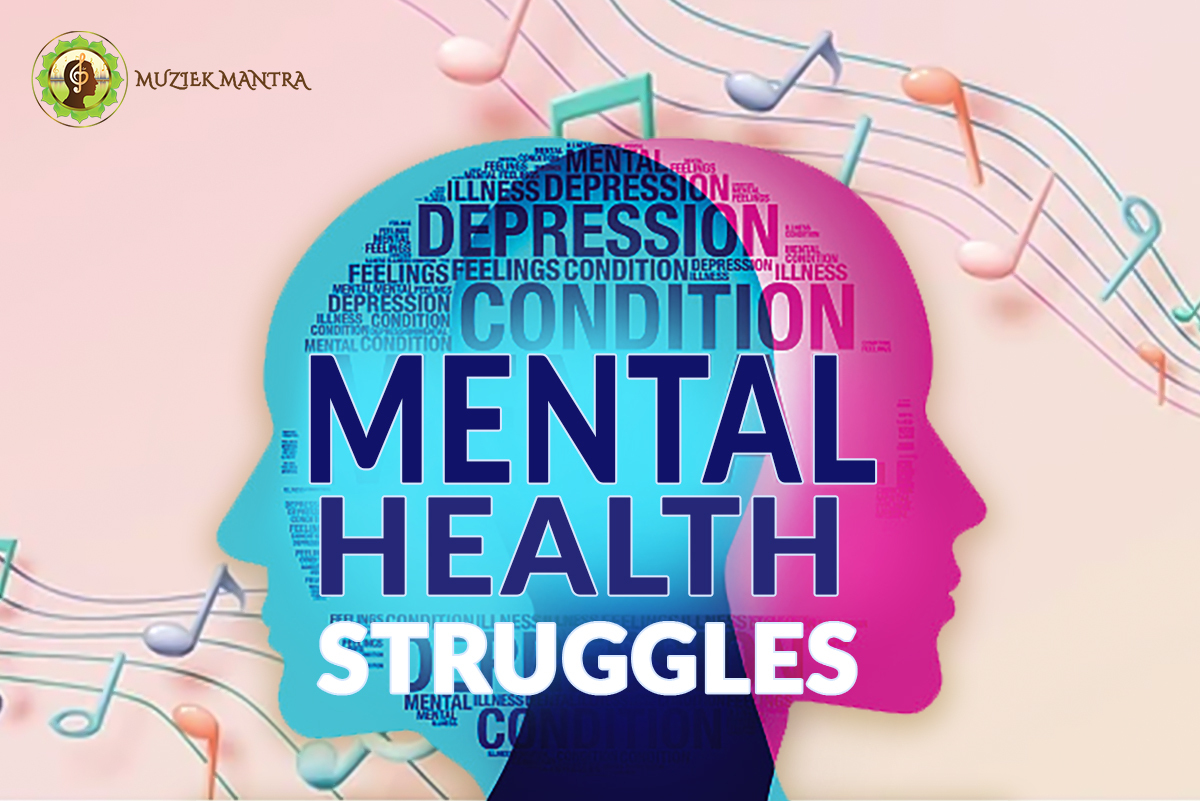One of the most prevalent chronic diseases in the world, chronic obstructive pulmonary disease (COPD) has a high prevalence and is associated with mortality and disability. By 2030, it is anticipated to rank as the third biggest cause of death worldwide. In India, the prevalence of COPD is currently 19.4%, and in the years to come, it is anticipated to increase. Patients with COPD frequently use music therapy as an alternative to medication. Effective therapy is challenging for patients with COPD because they frequently experience social isolation, are unable to access healthcare, and are underfunded in rehabilitation programs. Numerous research indicates that adding music therapy to conventional therapy may be beneficial.
What is COPD?
Shortness of breath, a persistent cough, and decreased lung function are some of the symptoms of COPD. These symptoms can cause worry, despair, and social isolation. Patients may find it challenging to exercise and may become increasingly less active, which worsens their physical and mental health. Here, music therapy enters the picture as a holistic strategy to enhance COPD patients’ entire quality of life.
Risk Factors of COPD Patients
Not just smoking, there are several risk factors that are associated with COPD. although smoking is one of the main risk factors for developing COPD, people who never smoke may also develop COPD.
The factors include:
- A history of childhood respiratory infections
- Smoke exposure
- Exposure to secondhand smoke
- People with a history of asthma
- People who have underdeveloped lungs
- Those who are aged 40 years and above
Role of Music Therapy
Lung diseases can be successfully treated using music therapy, which is a complementary kind of medical care. It can be done in almost any place and is fun and inexpensive. Patients with asthma who receive music therapy that includes breathing exercises have lower bronchial resistance and less anxiety. In children with severe pneumonia, it helps lessen anxiety and increase adherence to intravenous infusions. Due to its calming effects, passive music therapy, or simply listening to music, is useful in reducing dyspnea and anxiety, which encourages patients with COPD to tolerate exercise more.
Benefits of Music Therapy on COPD Patients
Several benefits are associated with the application of music therapy on COPD patients.

- Improved Breathing: Patients with COPD may learn how to coordinate their breathing with musical rhythms through music therapy. In the long run, this can help patients improve their ability to control their breathing, lessen breathlessness, and improve lung function.
- Stress Reduction: Stress and anxiety can be lessened by music. Making music or listening to relaxing music might help people unwind and lessen the psychological toll that COPD has on them. The bronchi constrict and narrow under stress, which has an impact on breathing. Attending music therapy sessions lowers stress, which lowers the risk of bronchitis.
- Enhanced Mood: Some COPD patients are concerned about cognitive deterioration, especially since episodes of breathlessness can cause the brain’s oxygen levels to drop. Learning an instrument or taking part in group musical exercises are examples of music therapy activities that test cognitive abilities and can help maintain mental sharpness and cognitive function.
- Social Connection: Group music therapy sessions can be a beneficial source of support and social engagement. Contrary to how COPD can cause social isolation, music therapy enables people to connect, communicate, and connect through music. This sensation of belonging can be a potent remedy for the disease’s emotional effects.
- Cognitive Stimulation: Engaging with music stimulates cognitive functions, which can be particularly beneficial for COPD patients dealing with cognitive decline associated with aging or medication side effects.
Conclusion
In conclusion, it can be said that music therapy has emerged as an essential component of an integrated approach to the management of chronic respiratory disease. Music therapy stands out in the complicated world of managing COPD as a comprehensive and pleasurable strategy that takes into account both a person’s physical symptoms as well as their emotional and psychological difficulties. Adults with COPD who get music therapy as a supplement to conventional medical care report a considerable improvement in their quality of life. It is a useful addition to the COPD treatment toolkit because of its capacity to improve breathing skills, control pain, provide emotional support, increase cognitive function, and promote social interactions. We can enable people with COPD to enjoy richer, more rewarding lives by fusing the power of music with their requirements.



